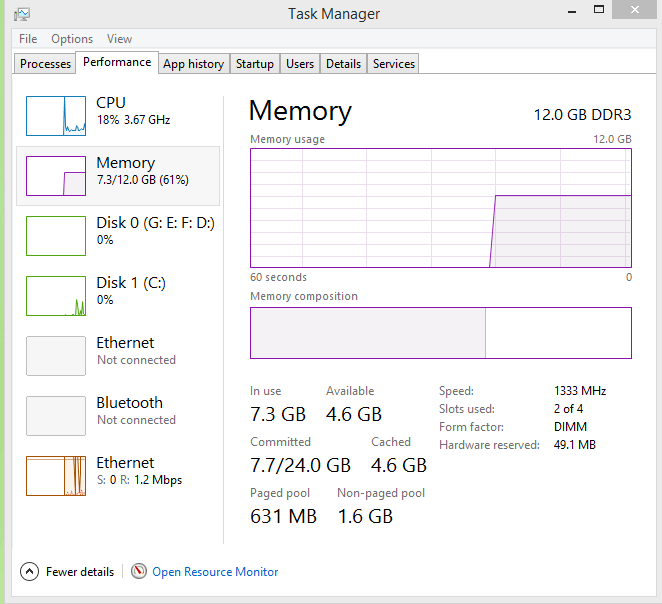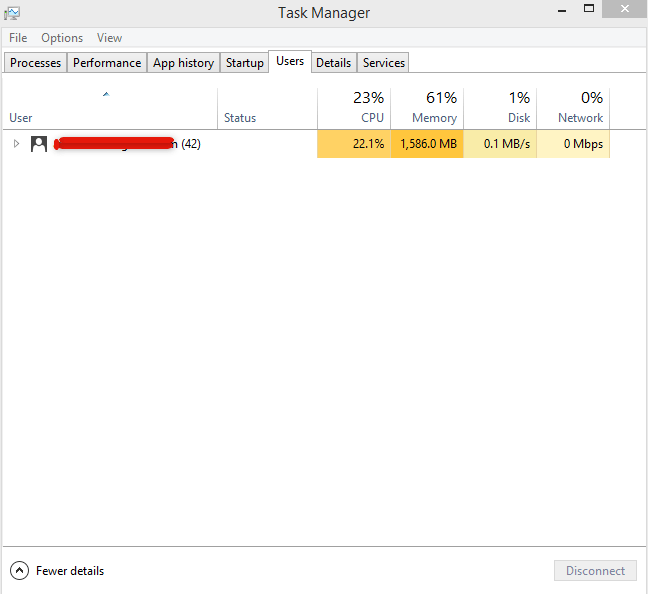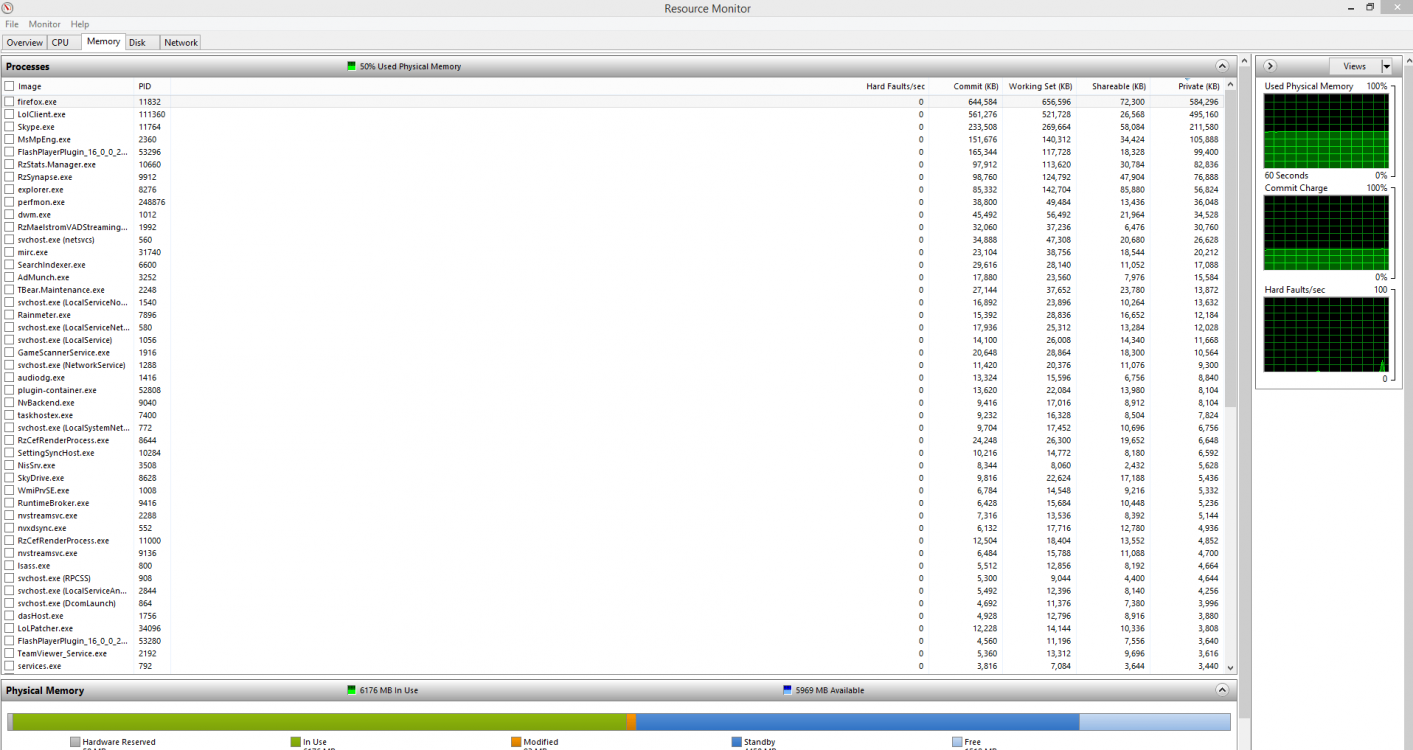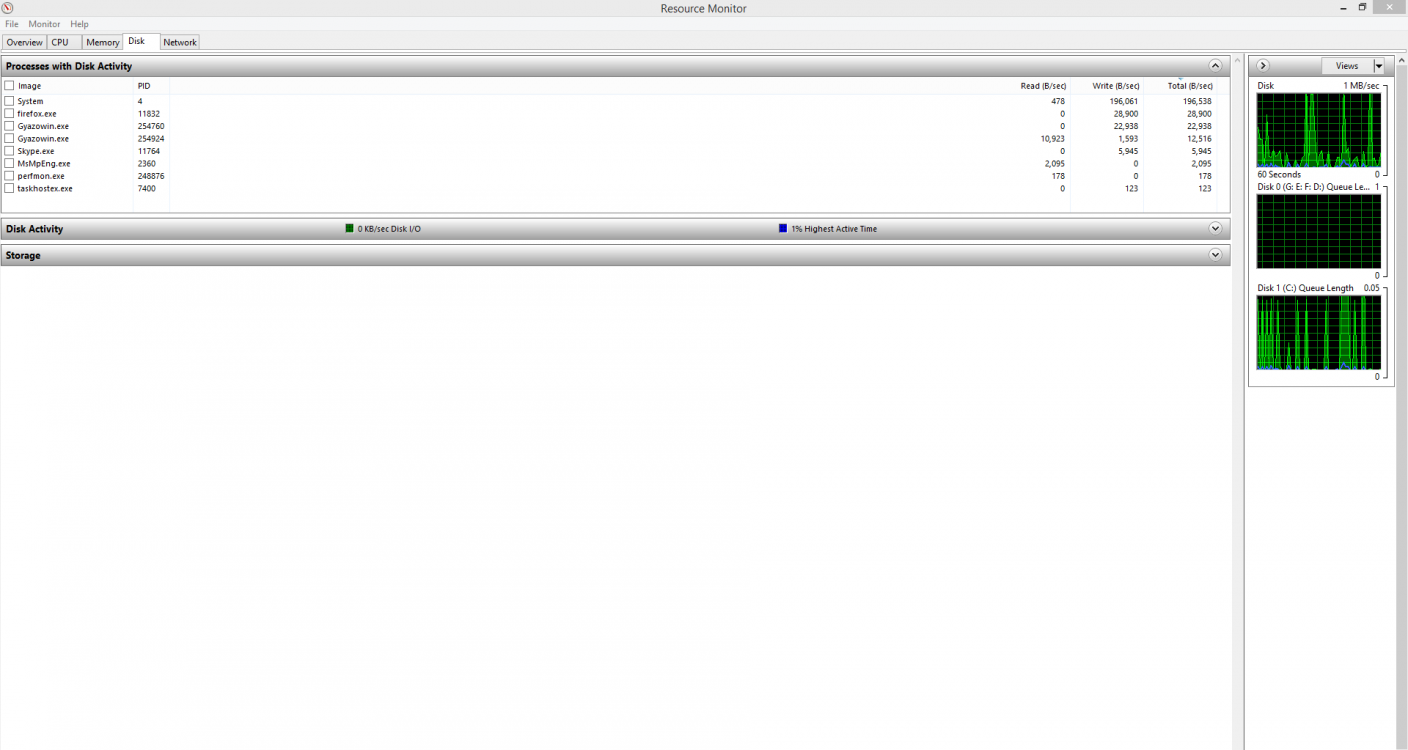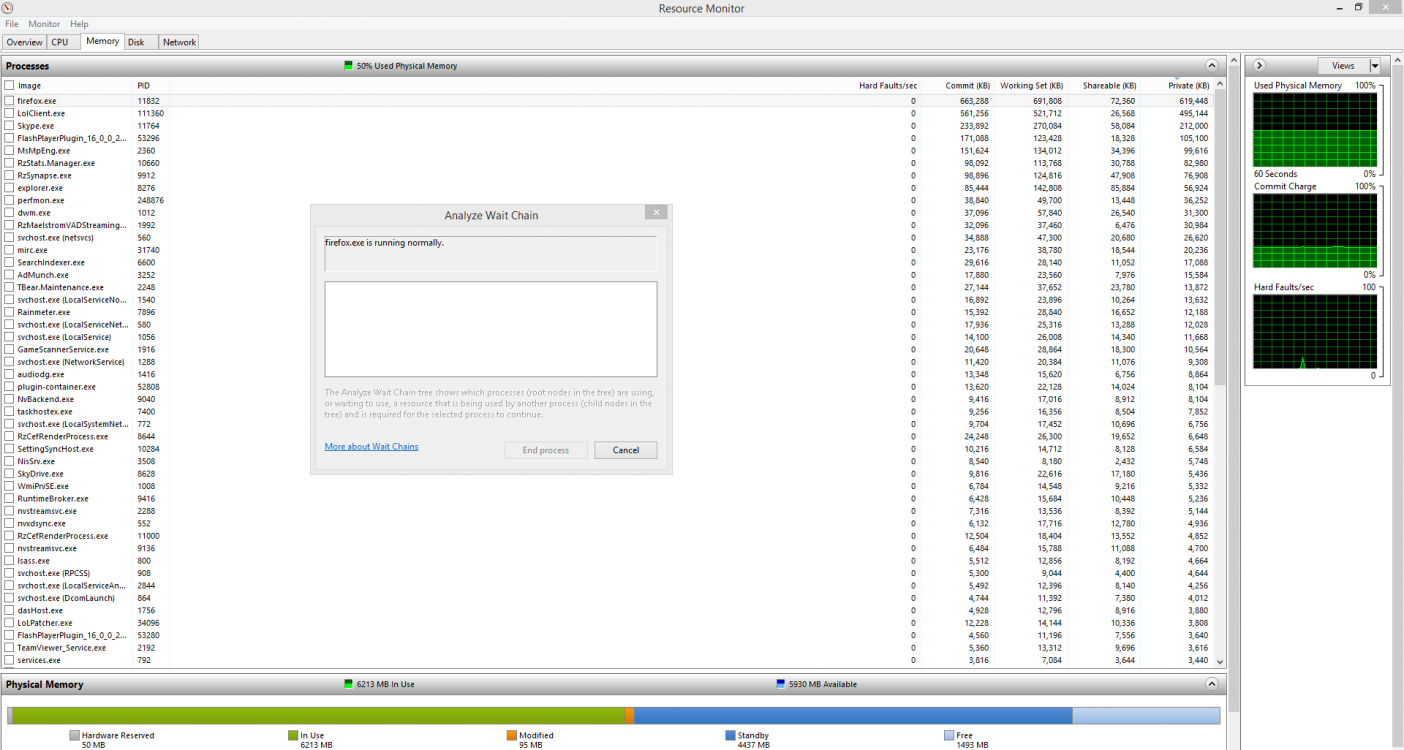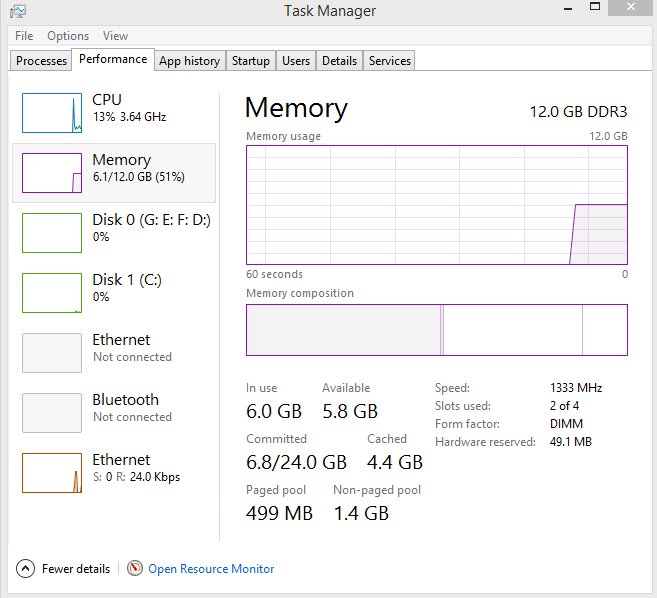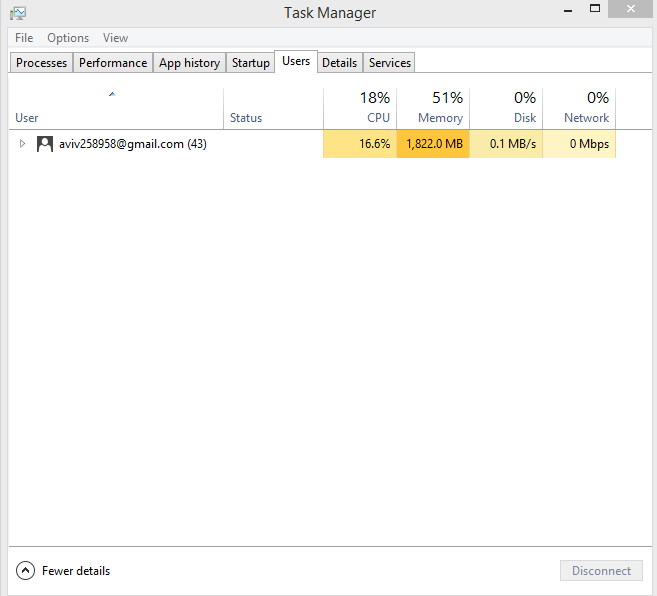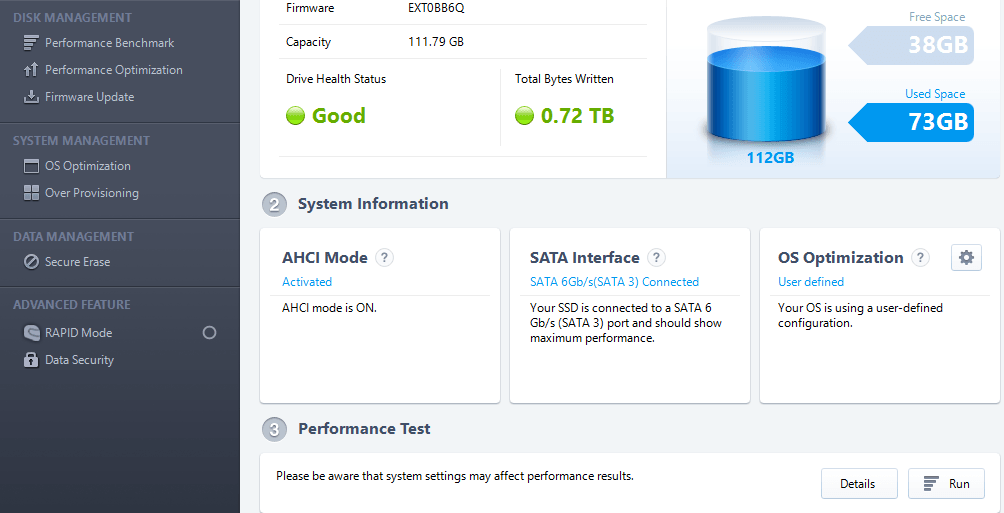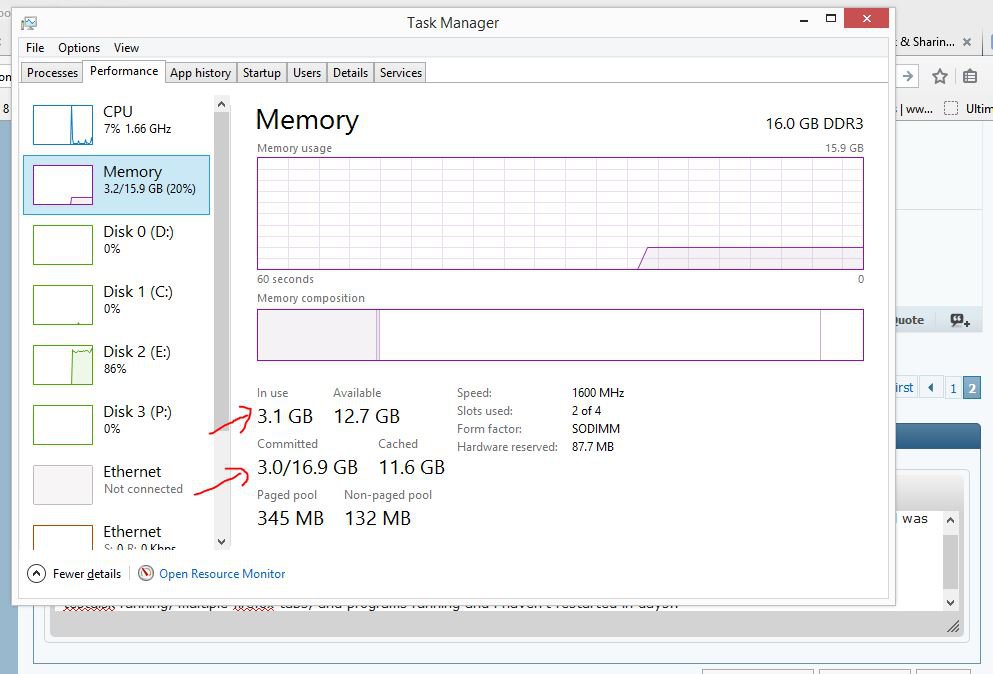aviv258958
New Member


- Messages
- 6
I am having this problem for about a month now. I tried disabling Ndu, I have tried a lot of things that did not help me.
My OS is running on an SSD (Samsung EVO 120GB)
Secondary OS is running on an HDD (1TB WD) (Bootmanager is also hosted on this HDD)
Computer gets to 80% ram usage and then freezes for about 5 minutes, and then it comes back and all programs report 'disk I/O error'
I have a video that describes the problem as follows (this is what happens after the pc unfreezes which takes about 5minutes and it freezes again after if I don't restart.):
[video=youtube;BUc1Xfl_a90]https://www.youtube.com/watch?v=BUc1Xfl_a90[/video]
I have tried most of the things I knew of. Searched a lot on google. nothing has fixed my problem yet.
My OS is running on an SSD (Samsung EVO 120GB)
Secondary OS is running on an HDD (1TB WD) (Bootmanager is also hosted on this HDD)
Computer gets to 80% ram usage and then freezes for about 5 minutes, and then it comes back and all programs report 'disk I/O error'
I have a video that describes the problem as follows (this is what happens after the pc unfreezes which takes about 5minutes and it freezes again after if I don't restart.):
[video=youtube;BUc1Xfl_a90]https://www.youtube.com/watch?v=BUc1Xfl_a90[/video]
I have tried most of the things I knew of. Searched a lot on google. nothing has fixed my problem yet.
My Computer
System One
-
- OS
- Windows 8.1
- Computer type
- PC/Desktop
- System Manufacturer/Model
- ----
- CPU
- i7-3770 @ 3.40GHz
- Motherboard
- MSI ZH77A-G43
- Memory
- 12.00GB
- Graphics Card(s)
- GTX 790
- Browser
- Mozilla FireFox
- Antivirus
- Windows Defender



